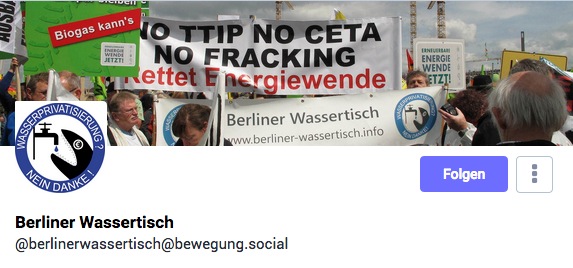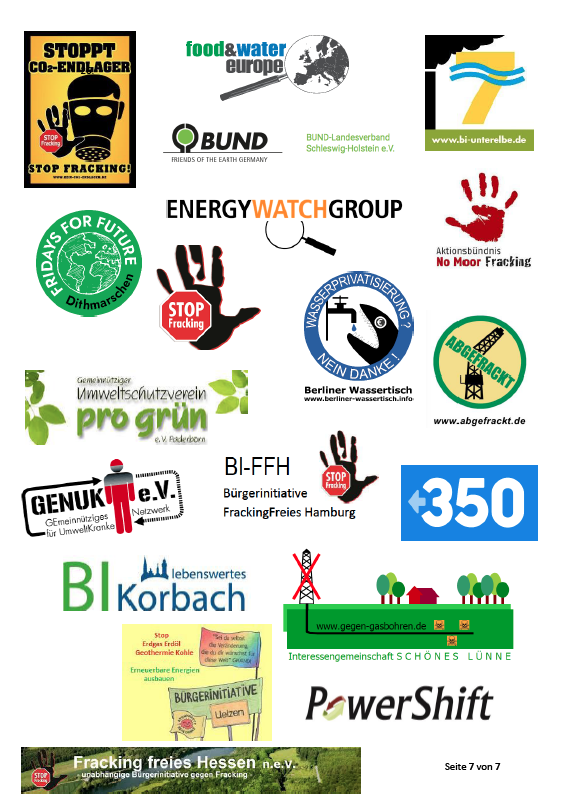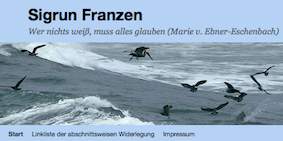Privatsphäre stärkt, Überwachung schwächt! #StopScanningMe


Suche

Schiefergas-Fracking in Deutschland?

#StopEUMercosur Erklärung

Aktion Greenpeace: #StopEUMercosur

#SaveTheOkavangoDelta

Erfolgreich! Über 1 Million Unterschriften „Green Deal“ – Europäische Bürgerinitiative (EBI)

Stop Energiecharta. #NoECT. Wir wollen raus aus dem Anti-Klimaschutz-Vertrag

Europäische Bürgerinitiative gegen biometrische Massenüberwachung (17.2.2021-17.2.2022)
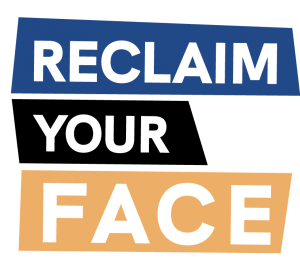
Lebensgefährliche Entwicklung: Gewinnorientierung im Krankenhaus
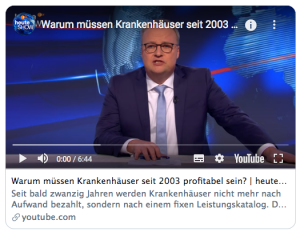
- Wassertisch-Plenum,
im NewYorck / Bethanien Mariannenplatz 2A
10997 Berlin Openstreetmap fällt coronabedingt aus Überblick (Messstellen: Oberflächengewässer und Grundwasser)


-
Letzte Beiträge
- AöW zum Weltwassertag 2023: Interkommunale Zusammenarbeit noch stärker ermöglichen
- Greenpeace: Fracking – eine unterirdisch schlechte Idee
- Bürgerinitiative gegen CO2-Endlager: Offener Brief an den Bundesminister für Wirtschaft und Klimaschutz Dr. Robert Habeck
- BUND gegen CCS-Endlager
- Jürgen Knirsch: CETA-Handelsabkommen: Eine trügerische Wette auf die Zukunft (Leserbrief an die SZ vom 8.12.2022)
- Neuere Materialien und Dokumente zur CETA-Debatte
- TAZ: Hamburger Abgeordneter über Olympia-Gedankenspiele: „Es kommt zu Vertreibungen“
- NDR: Bewirbt sich Hamburg noch einmal um Olympische Spiele?
- NGO-Bündnis fordert mit gemeinsamen Appell die Senkung des absoluten Ressourcenverbrauchs
- Allianz der öffentlichen Wasserwirtschaft warnt vor CETA: Mit dem jetzigen CETA-Text wird der Schutz der öffentlichen Wasserwirtschaft vor einer Kommerzialisierung weiter geschwächt

Delius-Klage
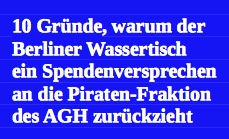
Keine Steuergelder für LNG-Fracking-Gas Terminals in Deutschland!

RSS-Feeds
Schlagwort-Archive: Bolivien
The water is ours damn it! Water commoning in Bolivia
Municipal Services Project
Herbst 2014
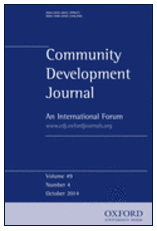
The water is ours damn it! Water commoning in Bolivia
Alexander Dwinell and Marcela Olivera
Abstract:
„This article explores understandings of the commons by showing its changing definition and application in daily life. The Bolivian experience both over the centuries and since the Water War of 2000 illustrates the malleability of the term. The commons operate according to who uses it (uses) and how it has been used (customs). The 2000 Cochabamba Water War provides the historical background and context for a perceived victory for the commons over privatization, followed by the Morales government’s use of a ‘public ownership’ campaign to usurp the power of commons from the people. The government’s use of a ‘public rights’ framework removes the power from the people and concentrates power in the state. Confronted by successful community organizing to keep the management of the commons at the community level and under popular control, the state intervened to reduce local autonomy and make the people dependent on government decision-making. Seeking to maintain local control and autonomy, the water committees in Bolivia continue to resist the state’s effort to manage the commons.“
Zum Artikel

 Pressemitteilungen
Pressemitteilungen